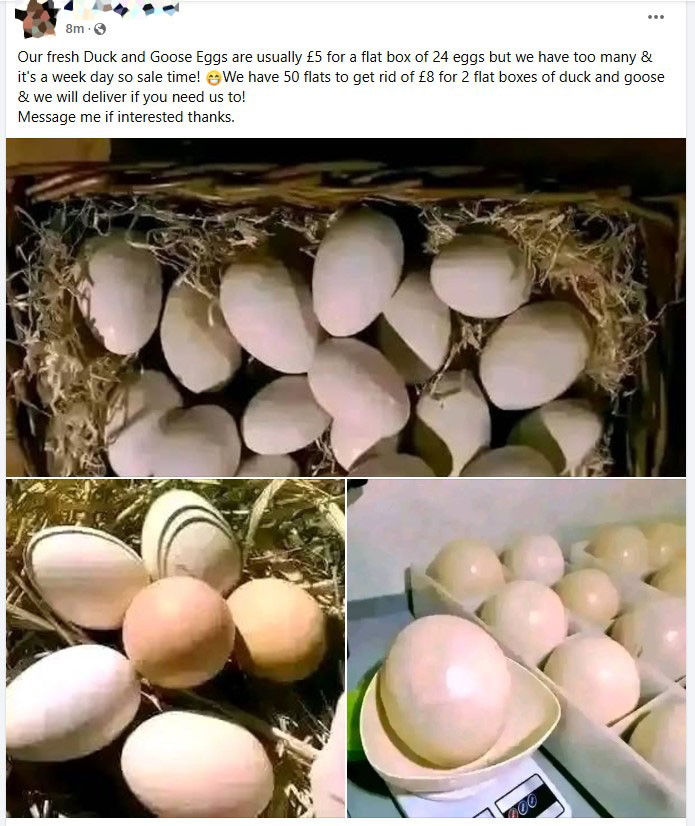
This is a variation of the Facebook egg scam, which often works as follows:
- The Fake Offer: The post advertises an incredibly cheap deal on duck or goose eggs (or other goods). The offer seems legit and is designed to attract people looking for bargains.
- Urgency and Scarcity: The post creates a sense of urgency, such as “too many in stock” or “limited supply,” pushing people to act quickly without thinking critically.
- Direct Messaging: The seller asks you to message them privately, which removes the interaction from public scrutiny and makes it harder to detect scams.
- Payment Upfront: The scammer will ask for payment upfront, often via bank transfer, PayPal friends and family (non-refundable), or other methods that don’t offer buyer protection.
- The Scam: Once payment is sent, the scammer disappears. The buyer never receives the eggs, and any attempts to contact the seller are ignored.
How to Spot and Avoid This Scam:
- Too Good to Be True: Deals that seem unusually cheap are often scams.
- Profile Check: Look at the seller’s profile. If it’s new or lacks genuine activity, it might be fake.
- Public Reviews: Real sellers often have reviews or public engagement. A lack of these is suspicious.
- Payment Method: Avoid paying upfront, especially using methods that don’t protect buyers.
- Delivery Promises: Be cautious if the seller insists on delivering themselves or makes excuses to avoid meeting in person.
Always verify sellers and offers before making any transactions on social media. If you suspect a scam, report the post to the platform.
